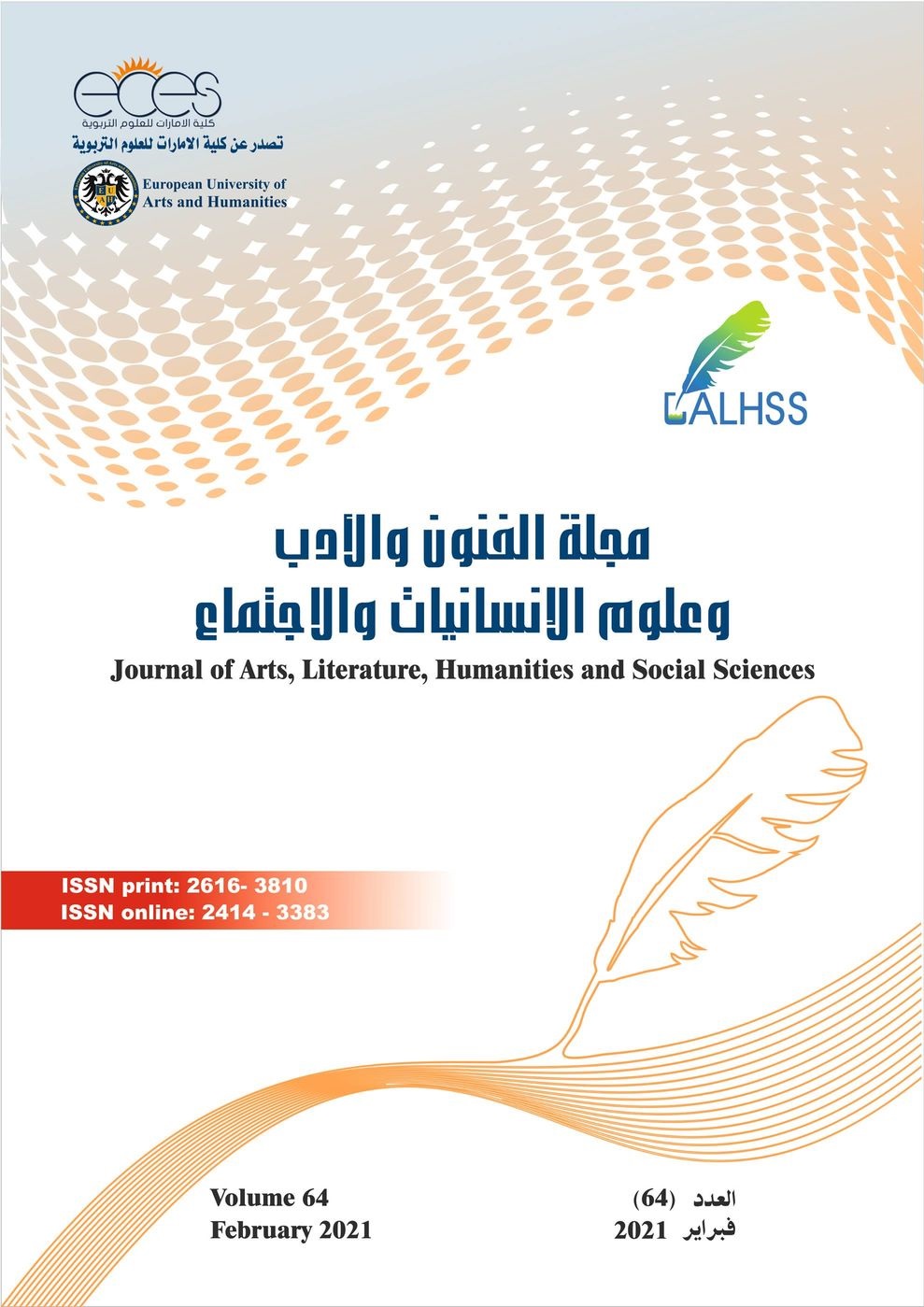Sherman Alexie: Poet of the Reservations
الملخص
Sherman Alexie is a Native American poet, novelist, short story writer, essayist, comedian, filmmaker and scriptwriter. He represents a new generation of Native American writers in the 1990s.
The aim of this article is to show that Alexie can be described as the poet of the Reservations because he is interested in truthfully portraying the social, political, economic, and cultural aspects of the lives of Native Americans living on Reservations.
المراجع
2 Kai, Erikson, “Notes on Trauma and Community,” Caruth Trauma 183-99.
3 Åse Nygren, Tracing Trauma: The Narration of Suffering in Sherman Alexie’s Fiction ( Diss. Göteborg Uni., 2007(, 70.
4 Nancy Peterson, ed., Conversations with Sherman Alexie (Jackson: UP of
Mississippi, 2009), 171.
5 Irene S. Vernon, Killing Us Quietly: Native Americans and HIV/AIDS (Lincoln: University of Nebraska Press, 2001), 6.
6 Jace Weaver, That The People Might Live: Native American Literatures and Native American community (New York: Oxford University Press,1997),11.
7 Rennard Strickland, Tonto's Revenge: Reflections on American Indian Culture and Policy (Albuquerque: University of New Mexico Press, 1997), 53.
8 Lynn Cline ,"About Sherman Alexie", Ploughshares, Vol. 26, No. 4 (Winter, 2000/2001), 197.
9 Quoted in Joseph Bruchac, Smoke Rising: The Native North American Literary Companion (Detroit: Visible Ink, 1995),2.
10 Quoted in Joel McNally, "Sherman Alexie", Writer 114, no. 6 (June 2001), 29.
11 Quoted in Bruce E. Johansen, ed., Native Americans Today: A Biographical Dictionary (California: Greenwood 2010),7.
12 Quoted in Joseph L. Coulombe, "The Approximate Size of His Favorite Humor Sherman Alexie's Comic Connections and Disconnections in The Lone Ranger and Tonto Fistfight in Heaven," in The American Indian Quarterly, Volume 26, Number 1, Winter (2002);104.
13 Quoted in Daniel Grassian, Understanding Sherman Alexie (South Carolina: University of South Carolina Press,2005),20.
14 Alan R. Pratt credits French surrealist poet and critic Andre Breton with having coined the term "humor noir" (dark or black humor). Black humor is used to designate a sub-genre of comedy and satire in which laughter arises from cynicism and skepticism often about the topic of death. See Alan R. Pratt, Introduction to Black Humor: Critical Essays (London: Routledge, 1992) xx.
15 Paula Gunn Allen, The Sacred Hoop: Recovering the Feminine in Ameri¬can Indian Traditions (Boston: Beacon, 1986), 159.
16 Ibid.
17 Louise Erdrich et al., Conversations with Louise Erdrich and Michael Dorris (Jackson: University Press of Mississippi, 1994), 209.
18 Quoted in Grassian, Understanding Sherman Alexie, 2.
19 Jane Hafe, ed., Dreams and Thunder: Stories, Poems, and The Sun Dance Opera (Lincoln: University of Nebraska Press, 2001),175.
20 Philip Heldrich, “Survival = Anger x Imagination”: Sherman Alexie’s Dark Humor” in Jeff Berglund and Jan Roush eds., Sherman Alexie: A Collection of Critical Essays. (Michigan: Sheridan Books, Inc., 2010),
21Sherman Alexie, The Business of Fancydancing: Stories and Poems (New York: Hanging Loose Press, 1992. All subsequent quotations of poems of this volume are taken from this edition and will be cited by abbreviated title and page number in parentheses after quotations.
22 HUD is The United States Department of Housing and Urban Development. It was founded in 1965 as part of the "Great Society" program of President Lyndon Johnson, to develop and execute policies on housing and cities.
23 Sherman Alexie, Old Shirts and & New Skins (California: Pace Publication Arts, 1993). All subsequent quotations of poems of this volume are taken from this edition and will be cited by abbreviated title and page number in parentheses after quotations.
24 Eduardo Duran and Bonnie Duran, Native American Postcolonial Psychology (Albany: State University of New York, 1995), 195.
25 Stephen Evans “Open Containers: Sherman Alexie’s Drunken Indians”, American Indian Quarterly, Winter (2001), vol. 25, no. 1: 54.
26 Fergus Bordewich, Killing the White Man's Indian: Reinventing Native Americans at the End of the Twentieth Century (New York: Anchor, 1997), 248.
27 Evans, “Open Containers: Sherman Alexie’s Drunken Indians”, 59.
28 Sherman Alexie, One Stick Song (New York: Hanging Loose Press, 2000). All subsequent quotations of poems of this volume are taken from this edition and will be cited by abbreviated title and page number in parentheses after quotations.
29 Sherman Alexie, First Indian on the Moon (New York: Hanging Loose Press, 1993.) All subsequent quotations of poems of this volume are taken from this edition and will be cited by abbreviated title and page number in parentheses after quotations.
30 Vine Deloria, Jr., Custer Died for Your Sins: An Indian Manifesto (Norman: University of Oklahoma Press,1988),147.
31 Frederick "Buffalo Bill" Cody (1846 –1917) was an American soldier, bison hunter and showman. He got his nickname after he undertook a contract to supply Kansas Pacific Railroad workers with buffalo meat. By his own count, he killed 4,280 head of buffalo in eighteen months. See Tom Thomas, ed., An Autobiography of Buffalo Bill Cody (Black Oyster Publishing Company, Inc., 2010), 63.
32 Clyde Ellis, A Dancing People: Powwow Culture on the Southern Plains (Lawrence: University of Kansas Press, 2003),111.
الحقوق الفكرية (c) 2021 Assist. Prof. Dr. Nabil Mohammed Ali Al-Jibouri

هذا العمل مرخص حسب الرخصة Creative Commons Attribution-NonCommercial-NoDerivatives 4.0 International License.



